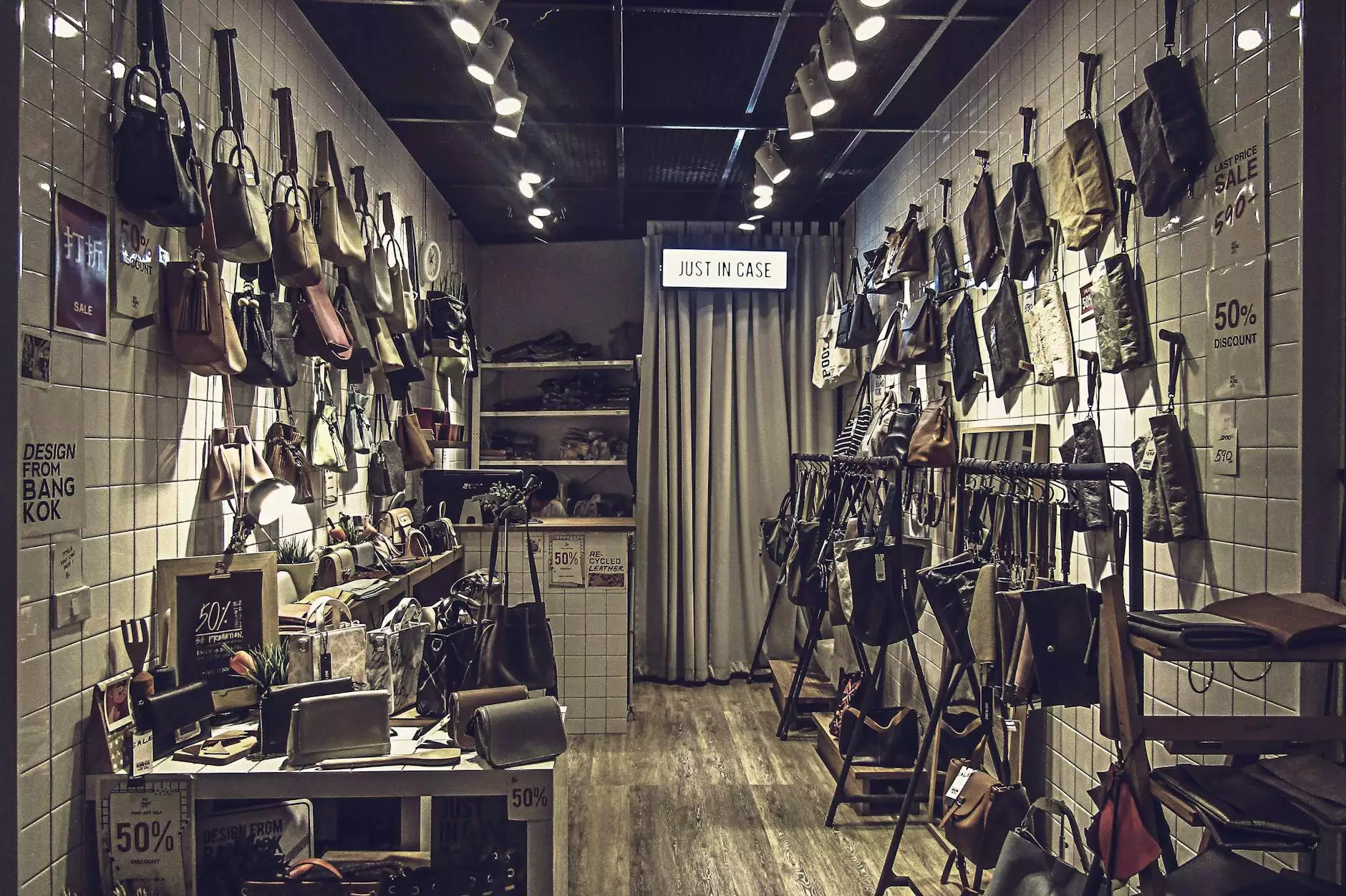Unlocking Success in the Business World: A Comprehensive Guide to Department Stores, Shopping, & Fashion

In today's dynamic and highly competitive marketplace, establishing and maintaining a successful business in the fields of department stores, shopping, and fashion requires more than just a good idea; it necessitates strategic planning, innovative marketing, legal expertise, and unwavering dedication. As brands and retailers strive to carve out their niche, understanding the core elements that drive growth and sustainability becomes paramount. This comprehensive guide explores essential strategies, legal considerations, and industry trends that empower entrepreneurs to excel in these thriving sectors.
Understanding the Landscape of Department Stores, Shopping, & Fashion Industry
The department store sector has traditionally been a cornerstone of retail shopping, offering a wide array of products under one roof. Over recent years, this sector has evolved dramatically due to technological advancements, changing consumer behaviors, and the rise of e-commerce platforms. Similarly, the shopping industry encompasses both brick-and-mortar and online retail options, emphasizing convenience, variety, and personalized experiences. The fashion industry is particularly fast-paced, driven by seasonal trends, cultural shifts, and consumer demands for unique, sustainable, and ethically produced apparel. Companies navigating this landscape must be adaptable, innovative, and legally compliant to stay ahead of competitors.
Key Elements for Building a Successful Business in These Industries
1. Market Research and Consumer Insights
An in-depth understanding of target demographics is critical. Identifying customer preferences, shopping behaviors, and emerging trends enables businesses to tailor their offerings effectively. Use analytics tools, surveys, and feedback channels to gather valuable insights that inform product selection, marketing strategies, and customer engagement.
2. Innovation and Differentiation
To stand out in a crowded marketplace, innovative approaches—such as exclusive product lines, personalized shopping experiences, and cutting-edge digital integration—are essential. For department stores, this could mean creating experiential zones; for fashion, it involves staying ahead of style trends and offering eco-friendly options.
3. Supply Chain Optimization
Efficient inventory management and logistics are fundamental to reducing costs and preventing stockouts. Building strong relationships with reliable suppliers and leveraging technology for real-time tracking can significantly enhance operational efficiency.
4. Embracing E-Commerce and Omnichannel Strategies
Today's consumers demand seamless shopping experiences across channels. Integrating online platforms with physical stores, offering click-and-collect options, and utilizing social media for marketing are vital. This omnichannel approach broadens reach and enhances customer satisfaction.
5. Brand Development and Customer Loyalty
Developing a compelling brand story and engaging marketing campaigns foster brand loyalty. Regularly updating collections, offering loyalty programs, and providing excellent customer service build long-term relationships with customers.
Legal Considerations: Why a tax attorney Is Essential for Your Business Success
Navigating the legal landscape of retail, shopping, and fashion businesses can be complex. From tax compliance to intellectual property rights, legal expertise is indispensable. Specifically, engaging with a tax attorney can safeguard your business against legal pitfalls and optimize financial performance. .> A tax attorney specializes in understanding the nuances of tax laws, deductions, credits, and compliance requirements pertinent to retail and fashion enterprises. They can assist in structuring your business to minimize tax liabilities while ensuring adherence to local, federal, and international regulations.
Benefits of Hiring a Tax Attorney for Your Business
- Tax Planning and Strategy: Developing proactive strategies to reduce tax burdens legally, including appropriate deductions, credits, and incentives relevant to retail and fashion sectors.
- Compliance and Risk Management: Ensuring your business complies with all tax laws, thereby avoiding penalties, audits, and legal disputes.
- Business Structuring: Advising on the most advantageous legal structure—LLC, corporation, partnership—to optimize tax benefits and operational flexibility.
- Transaction Support: Providing legal guidance on mergers, acquisitions, or expansion efforts that involve complex tax implications.
- Intellectual Property Protection: Assisting with trademarks and copyrights to safeguard your brand identity in the competitive fashion and shopping industry.
Trends Fueling Growth in the Sector
1. Sustainability and Ethical Fashion
Modern consumers are increasingly valuing sustainable and ethically produced products. Businesses investing in eco-friendly materials and transparent supply chains not only meet consumer demand but also create a positive brand image.
2. Digital Transformation
From virtual fitting rooms to AI-driven personalization, digital tools are revolutionizing how consumers shop. Leveraging technologies like AR, VR, and machine learning elevates the shopping experience, especially for fashion brands.
3. Social Commerce
Social media platforms such as Instagram, TikTok, and Pinterest serve as shopping venues, enabling brands to reach customers directly and convert engagement into sales. Influencer collaborations and user-generated content amplify brand visibility.
4. Omnichannel Retailing
Integrating physical and digital channels to create a seamless customer journey increases retention and loyalty. Features like in-store pickup, mobile payment options, and personalized online services are currently trending.
Strategies for Outranking Competitors
To achieve superior search engine rankings, it's vital to create content that is comprehensive, targeted, and optimized for relevant keywords. Websites like Kesikli can use detailed articles, case studies, and industry reports to provide value that competitors often overlook. Incorporating a tax attorney as a keyword in high-quality content demonstrates authority and relevance in legal and financial aspects of business.
Content Quality and SEO Optimization
- Informative and Unique Content: Publish detailed articles that answer common questions, offering solutions for entrepreneurs in retail and fashion sectors.
- Keyword Integration: Naturally incorporate keywords such as a tax attorney to improve visibility.
- Rich Media and Visuals: Use high-quality images, infographics, and videos to enhance user engagement.
- Technical SEO: Ensure fast load times, mobile compatibility, and proper metadata to increase page ranking.
- Backlink Development: Earn links from reputable sources within the industry to boost domain authority.
Conclusion: Paving the Path to Business Prosperity
Success in department stores, shopping, and fashion industries hinges on a multifaceted approach combining innovative marketing, operational excellence, strategic legal planning, and adaptability to evolving trends. Engaging with experts like a tax attorney is crucial for securing financial health and legal compliance, enabling your business to focus on growth and customer satisfaction. By staying informed about industry trends, leveraging cutting-edge technology, and building a compelling brand, you can position your enterprise for long-term success. Remember, the journey of entrepreneurship is ongoing, and continuous improvement, supported by expert advice and high-quality content, will keep your business ahead of the competition.









